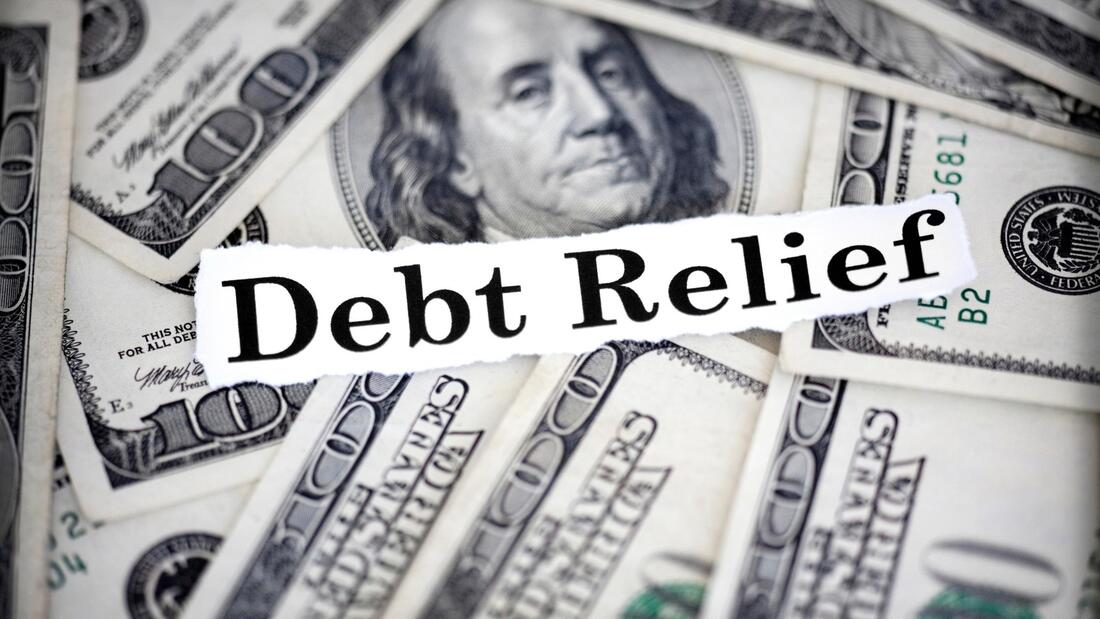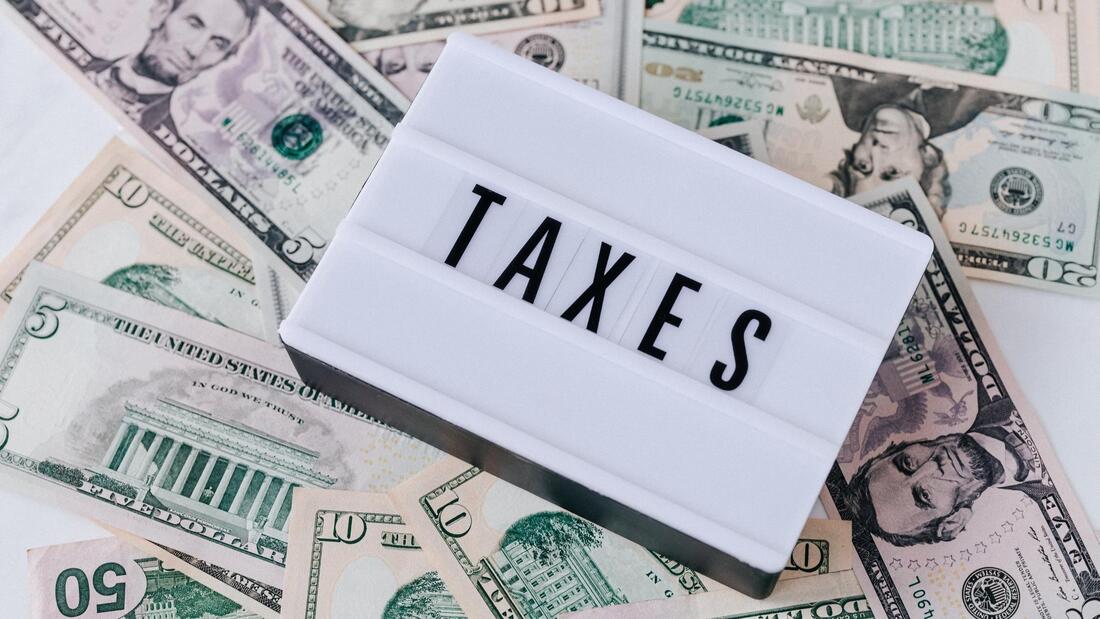|
Credit cards can be highly beneficial to your finances because they allow you to have a cushion for emergencies, earn cash back, and build a solid credit history. However, if you get behind on your payments, recovery can be very challenging. Missing one or two payments may not seem like a big deal, but it is. The late fees are expensive and it immediately impacts your credit score.
How to get back on track after falling behind on payments If you are behind on credit card or unsecured debt payments, you should be proactive about creating a solution. There are programs designed to help customers get back on track and recover their finances after falling behind on their payments. It would be wise to do some diligent research on debt relief agencies. Once you have selected a debt relief agency, the next step is to see how they can help you. Check to see if they can waive late or over-limit fees to help recover some of the added and unnecessary costs. A reputable debt agency will already have an established relationship with creditors, and they should be able to request fee reversals on your behalf. Next, it’s time to work on lowering your payments. The key to getting back on track with your credit card is being able to afford the payments in the first place. There are a variety of factors to take into consideration when determining your monthly debt payments. It may require adding or removing debt accounts to negotiate a payment plan that works better for your budget. The goal is to avoid missing payments in the future. Once you’re moving forward in the program, it is very important that you contact your debt agency as soon as possible, if you’re not sure that you’ll be able to make an upcoming payment. They can work with you to make a partial payment or call your credit card company to negotiate with them. Finally, sometimes the issue is not with how you manage your money but how much money you have to manage. If you are working on a very tight budget, consider your options for generating additional income. If you can do this, you will not only earn more money, you will be protecting your other hard earned source of income from wasteful financing charges and unnecessary fees. Even people with the best of intentions and great work ethic can get behind on credit card payments. When this happens, it’s important to ask for help as soon as possible rather than wait for the situation to get worse. To jumpstart your debt relief journey, consider a free debt analysis. During this quick consultation, we will be able to advise you on what it will take to get back on track with your payments (and how we could help you!)
0 Comments
How Inflation will Impact Personal Debt
If you’ve been paying attention to the news, you know that the inflation rate in the United States is higher than it’s been in decades. Currently, the annual inflation rate for the United States is 8.5%. This is the highest it’s been since 1981. It’s clear that inflation affects goods and services, but if you are trying to get out of debt, you may be wondering how inflation impacts personal debt. Inflation is the decline of purchasing power that a given currency has over time. The effects of inflation tend to be a rise in the cost of goods and services, essentially reducing the value of a dollar. Generally speaking, inflation can have a positive effect on personal debt. If your wages are increasing with inflation and you have been carrying a debt balance, you may be one of the few people who actually benefit from inflation. If you are in the fortunate position of earning more income while making the same monthly payment on your debt each month, then you’re ahead of the game! Keep in mind, this would only benefit an individual with a fixed rate of interest. If your interest rate rises with your wages, then you likely won’t see the same benefit. However, one especially important consideration is that with inflation, cost of living increases. When the cost of products and services increase (and they will, if they haven’t already), you better hope that you get that wage increase! If your wage increase doesn’t exceed the rising cost of goods and services, then it won’t matter that the cost of your debt is cheaper because you will have a difficult time paying it down in the first place! Inflation is on the rise and breaking records, but it isn’t all bad news if you can leverage your employer for that long coming wage increase! Inflation has also been known to increase the value of tangible assets and reduce the cost of liabilities. If you are interested in reviewing your budget and customizing a debt repayment plan that you can afford, contact Golden State Debt Management to speak with a knowledgeable and experienced debt relief counselor. If you are carrying a debt balance, you may have considered exploring debt relief services. Debt relief companies negotiate with creditors to establish lower payments or better payment terms, on the consumer’s behalf. If negotiated successfully, a consumer will generally pay back a fraction of the balance owed (principal and or financing costs).
However, with these kinds of benefits, you may be wondering how legitimate debt relief programs are. Firstly, when searching for a debt relief program, be discerning. Repayment of financial debt can be an arduous process, so it is important to get a quality debt relief company on your side to help you navigate and negotiate. When looking for a debt relief program, consider how many products they offer. It may seem logical to go with a company that only offers a single product, such as debt settlement or loan financing, but that company is more likely to push consumers into buying a specific product. On the other hand, companies that offer a variety of solutions will be better incentivized to present a program or product that best suits the consumer’s needs. Every debt relief solution has pros and cons. Some debt repayment programs can preserve your credit score, but will require a higher monthly payment. A second program may be able to obtain super affordable monthly payments, but will likely impact the credit score. Still, a third option could be getting a client low payment with no credit damage, but that may require taking out a new loan with high interest. If your debt relief company is not upfront with the pros and cons, they may night have your best interests in mind. Utilize their free debt consultation & resources Another thing to look for is an offer for a free debt review. Most reputable companies that are offering consumers debt help will provide a free consultation or debt analysis ahead of program enrollment. This will give the consumer an opportunity to hear about the programs available, learn about eligibility and calculate a new and affordable monthly payment. A debt company invested in getting the customers out of debt and helping them stay out of debt will have plenty of educational tools to help them develop better financial habits. Take the time to explore those resources and develop a savvy financial plan of your own! Investigate business ratings and reviews Finally, you should consider the company’s business rating and its reviews. The Better Business Bureau rates businesses. The initial rating is an A+. However, it is difficult for businesses to keep the A+ rating, so a business that has maintained its positive rating will be a good company to work with. On top of that, you also want to consider the reviews. Every company will have negative reviews, but it is important to see how it handles them. Does the company offer solutions to the client, complain, or ignore it? The way the company responds to these public reviews will tell you a lot about how they run their business. If you are looking for a debt relief company that can help you navigate the delicate process of getting out of debt for an affordable price, Golden State Debt Management is a great place to start. Please contact us at 844-249-2366 to speak to a debt help representative. We have maintained an A+ rating with the BBB for almost 20 years and are happy to offer new clients a free debt analysis. Did you know roughly 30% of Americans have defaulted debt? Medical bills make up the highest debt, followed by student loans, auto loans, and credit cards. If someone is unable to make the payments, they may consider a debt settlement, which can help them negotiate their debts down. While people can benefit from having their debts settled, they still may incur tax fees.
Generally speaking, most of your canceled debt will be taxable. If you can settle for an amount that is drastically lower than your total debts owed, you will be taxed on any forgiven debt over $600. Your creditor will file a 1099-C form with the IRS that will detail the amount of your settled debt, and then you will receive that form from your creditor in the year that your final payment is made. However, some canceled debt has different rules. Some forms of canceled debt can be eliminated from your taxable income, while others may be lowered or reduced but not completely erased. These are called exceptions and exclusions, respectively. Exceptions can include gifts, certain student loans, deductible debt, and prices that have been reduced after purchase. Exclusions can include discharge of debt through bankruptcy, insolvent taxpayer, or qualified farm indebtedness, to name a few. Whether you are dealing with forgiven debt under $600 or over it, the best way to ensure you complete your taxes appropriately is to hire a tax preparer and request a 942 form. A tax expert will help you navigate the information and ensure that you are filing your taxes correctly. Normally, even after paying taxes on settled debt, most consumers find that they can pay off their debts quicker and less expensively in a debt program (as opposed to paying off the balance with interest charges, on their own). If you’re looking for assistance with your debt, or want to explore other options, contact Golden State Debt Management to take advantage of our offer for a free consultation. If you are considering closing a credit card, you may be surprised to find out the impacts that this will have on your credit profile such as the ratio credit available to credit used. Although keeping unused credit cards open theoretically can help improve your credit score, there are valid and important reasons for closing them anyways such as reducing credit risk, or plainly having one less monetary item to worry about.
Before canceling a credit card, take time to review your creditor’s rules for closing the account. The rules may affect your decision, and you don’t want to find out about a difficult one after you’ve requested cancellation. Your creditor’s rules can be found in the credit card agreement, or you can request them directly from the issuer. Redeem any rewards you may have earned. If you cancel the card without redeeming your rewards, you will normally lose them. If the card has been paid off, remember to cancel automatic payments so that you don’t have to chase down any overpayment that may be debited from your account. We recommend canceling your card only after paying off the balance. If you cannot pay the balance of your credit card, you may want to consider transferring it to a different card with lower interest rates. Once the credit account has been successfully closed, check your credit report and destroy the card. Keep in mind, it may take a month before your credit profile reflects the closed account. Consistent monitoring of your credit profile is an excellent habit and will help to prevent fraud from damaging your credit score, alerting you to dispute it immediately (and not when you’re in the middle of trying to get a loan for an important acquisition), or a year after the fraud occurs. Hopefully this information helps you to make an informed decision about whether or not to close your credit card, and best practices for doing so. If you need more assistance understanding your credit profile and finding ways to regain control of your debts, our credit counseling program can help review your current financial situation and design a customized budget to help you repay your debt. Contrary to popular belief, overwhelming debt is normally the result of a family emergency and unplanned expenses that spin out of control. Most people do not end up with significant debt because of an addiction to shoes, or the like. It can happen to anyone, at any point in time, and causes extreme duress in the life of the individual. In these situations, debt reconciliation is the solution! And, one of the most frequent questions we are asked about debt reconciliation is:
What happens at the end of the Debt Reconciliation process? Debt reconciliation, or debt elimination, is a method of debt repayment. It is a simple and cost effective way to consolidate multiple debts, remove individual accounts and transition into a stronger financial future. Debt reconciliation is ideal for consumers with income and a realistic budget, who are able to commit to affordable on-time payments. To start the debt reconciliation process, you must have a solid understanding of your income, expenses and debts. You want to be thorough in this stage because there’s nothing worse than starting the debt program, then losing a stream of income or realizing that a debt account has accidentally been omitted! These types of mistakes will undoubtedly set you back in your program and cost you unnecessary creditor fees/financing charges. If you have a budget, this will be a very helpful tool for creating your personalized debt plan and determining what type of payment you can afford. If you don’t have a budget, we can help you create one - as long as you have all your income and expenses ready to review! While debt reconciliation is a great solution for some people, it is not ideal for everyone. If your debt load is small, it may not benefit you to consolidate. However, if your debt payments are too high for you to escape the minimum payment trap a debt program could be just the right solution! Here at Golden State Debt Management, we believe credit cards are a great tool. And if you are good at managing your spending, credit cards are also a good option for your holiday purchases. Credit cards are convenient, efficient for bookkeeping or tracking spending and a great way to stack up rewards. Credit cards are also an excellent tool for building a good credit profile.
Okay, maybe it’s a bit excessive to use credit cards for all your holiday purchases, but here are four times you absolutely should. When should you use credit cards during the holidays?
Credit cards are a great tool for holiday shopping. When used strategically, they help to make large purchases quicker than you could with cash and build credit and earn rewards! When the cost of credit card debt becomes a problem and you find yourself stuck in a minimum payment trap, then it's time to give us a call or request a free debt analysis! Our debt programs help our clients gain control of their debts and pay the balance down faster than they would on their own (and at a fraction of the cost). At the beginning of the pandemic, the financial markets saw a sharp decline in
credit card spending. Debt was being paid off in a record-breaking fashion, due in part to the stimulus money being distributed. But now, almost two years later, debt is starting to creep back up again. Credit Card Debt Increasing as Lockdowns End Not all debt is created equally. Mortgage, car loans, and credit cards are vastly different from one another. The only thing they have in common is that they all have been increasing in 2021 after going down in 2020. Because of the booming housing market, the amount of money in mortgage debt has gone up. Auto loan debt has started to creep up as well, but the most concerning is credit card debt. Unlike mortgage debt and auto loans, credit card debt is revolving, and you can spend as much as you want as long as you stay within your credit limit. This is dangerous because maxing out your credit cards can put you under a mountain of debt that can take years to recover from, special thanks to the exorbitant cost of interest. The average interest rate on revolving debt is over 16%, and it can be difficult to consistently make minimum payments as interest grows with the balance. If you miss a payment, you will likely incur a fee, and then pay interest on the cost of that fee! All these things combined lead to a cycle that is very difficult to escape. Based on a study done by the real estate firm Clever, the reality of credit card debt is that 40% of people who carry a balance on their credit cards haven’t been debt-free since 2018, and 15% of these people have been struggling for more than a decade. Credit card debt is starting to climb up again, and in some ways, it could be a good sign that people are borrowing more. Increased debt can suggest that consumers are optimistic about the future of their finances and the security of their jobs and income. The economy is stimulated by this type of confident spending. However, it is a problem if people are turning to their credit cards to purchase the basics and things they cannot live without. The cost for goods and services have seen a dramatic increase due to the pent up demand from COVID-19. Pandemic-related supply chain issues and stimulus money distributed by the government has increased the supply of currency and driven up demand. It is likely that people are spending more on their credit card because of the effect that inflation has had on their budget for home essentials. Optimism aside, consumers need to beware of the increasing risk associated with revolving debt (credit card use). The safest bet is to avoid borrowing money that can't be paid back when the credit card bill comes due. We understand that people get into difficult situations, and credit card spending becomes essential. So, thank goodness for debt repayment programs like the one we provide to consumers experiencing hardship! If you or someone you know is struggling to afford the cost of their debt, give us a call or request an appointment today! It is always a great use of time to review and analyze your personal finances. If you’re looking to start saving money or paying off debt, it is an absolutely necessary task! Strategically reviewing your finances can become a very simple and stress free task once you know what to look for. (i.e. where you may be leaving money on the table, when to cut back on frivolous spending)
Here are four tips for strategically reviewing your personal finances. 1. Be objective about your financial situation. The first step is to understand your situation. Take some time to collect all of the statements and financial documents that you can get your hands on. Think about forms of income, types of expenses, and investment accounts. Knowing what you look like on paper is half of the challenge. 2. Be clear about your goals. Set one or two easy goals that you can achieve in the short term, which will encourage you to go after the one or two bigger goals that you set for the future. Whether your goal is to eat at home more often, take a yearly vacation or save $50,000, setting goals is a good way to keep you on track and the only way to build financial strength. 3. Create a realistic budget. Once you’ve thoroughly reviewed your financial situation (and really understand what you’re up against), it’s time to create a budget that fits your short and long term goals. The most important advice we can give you about your budget is to make it realistic. Leave room for emergencies, errors and life itself! Things happen, and you don’t want all your hard work and determination to get derailed by a bit of bad luck. When developing your budget, it’s important to set aside categories for every major expense, including utilities, groceries…and entertainment. This is why we recommend taking time to collect ALL of your financial documents in tip #1! 4. Commit to a debt repayment program. No matter what goals you set or how you’ve chosen to budget, paying off debt is the single most important key to building financial strength. Debt is not bad, but too much debt is the worst thing that can happen to you. Debt can help people make it through rough times, build businesses and pay for emergencies, but a bad debt to equity ratio (more debt than you can afford to pay off in a short period of time) will prevent you from having a comfortable future. A good debt relief program can put you on the right path to managing the cost of debt (and the stress of it!) Strategically reviewing your personal finances is not a one-time endeavor, it is a lifestyle. It is a monthly commitment that you will have to get comfortable with (just like paying your bills). We encourage you to take some time, develop your own style and get to work on building your empire!!! If you need help taking the first step (analyzing your financial situation and creating a budget), give us a call TODAY to take advantage of our offer for a free analysis! If you’re feeling impacted by a mountain of debt, debt consolidation may be a great way to lighten your load. Debt consolidation combines multiple debts into one single payment. In a good debt consolidation program, you’d be paying a lower interest rate on your consolidated debt than you are paying on the individual debt accounts.
Debt consolidation can help reduce the total cost of debt repayment by reorganizing, reducing and simplifying pay-off on multiple accounts. There are a number of ways to consolidate debt. Debt consolidation programs are the safest way to repay debt as opposed to transferring debt balances to a new card (for a fee) or taking out a fixed rate loan. A good debt relief company works with their clients to pay down existing debts and teach new habits for good money management, without encouraging clients to take on any risky new debts. Most balance transfer cards offer a period of zero-interest payments, but normally require an upfront fee of 3% the total debt balance. Once the zero interest period ends, the interest payment normally returns to that of a regular credit card (+/- 20% APR). A balance transfer card requires good credit to qualify. Fixed-rate debt consolidation loans use borrowed money to pay off existing debt accounts. Once your existing debts are paid off, the consolidation loan company becomes your sole creditor. These loans normally have very high interest rates and can become even more expensive than the original debt, if repayment terms are extended over a period of time. A person with bad to fair credit can normally qualify for a debt consolidation loan (at a high price). Consolidating debt is a great way to relieve the stress (and reduce the cost) of paying down multiple credit cards and unsecured debts. As long as you can commit to making on time program payments and staying on track with your budgeted expenses, a debt consolidation program will have your debts paid off in a fraction of the time that you would on your own! |
Archives
February 2022
Categories
All
Help with Debt?Need help with your credit card debt? Talk to certified credit counselor today call 844-872-9046
|
Accredited Non-Profit Credit Counseling Agency
23868 Hawthorne, Suite 201 Torrance, CA 90505
23868 Hawthorne, Suite 201 Torrance, CA 90505











